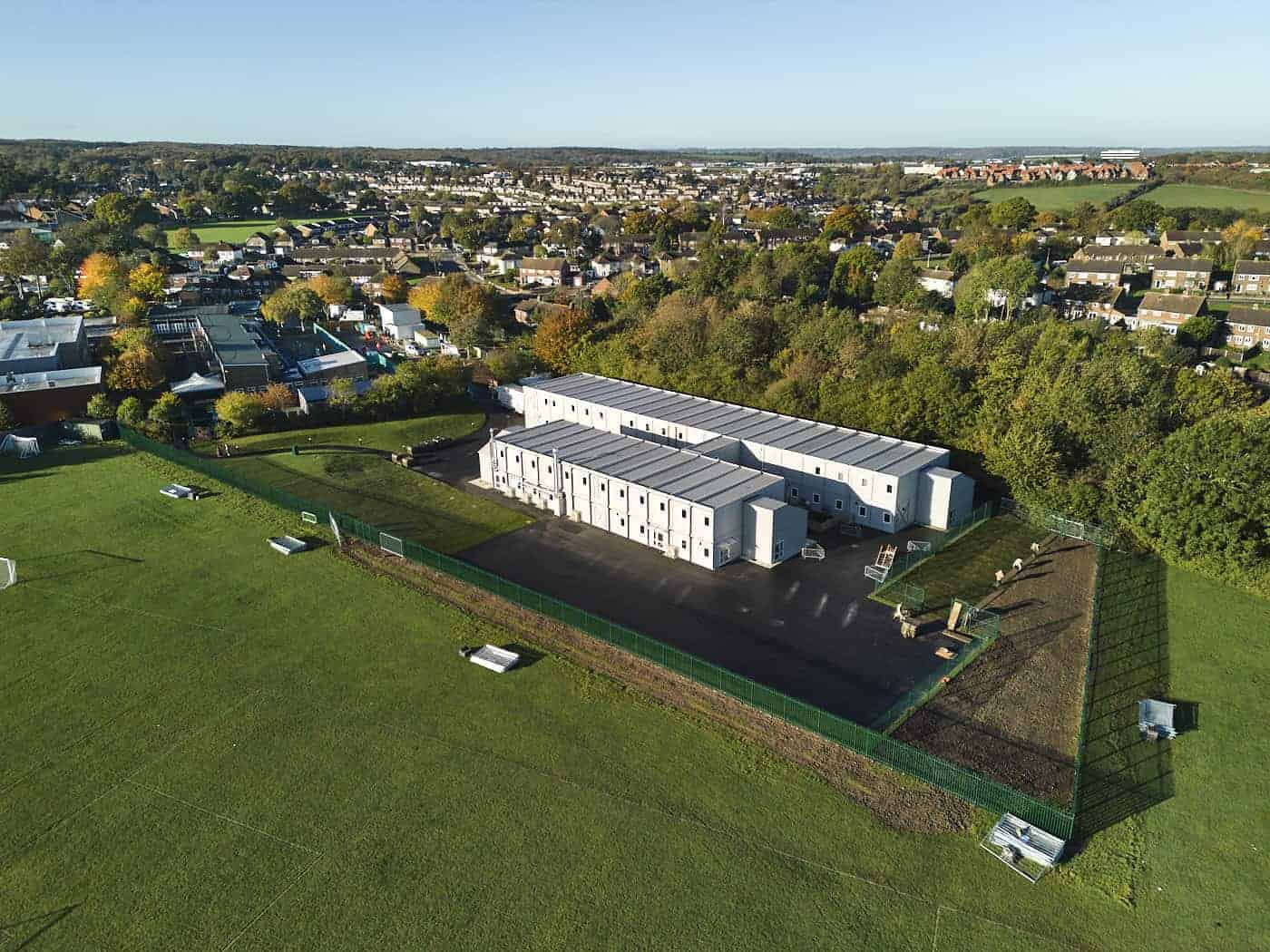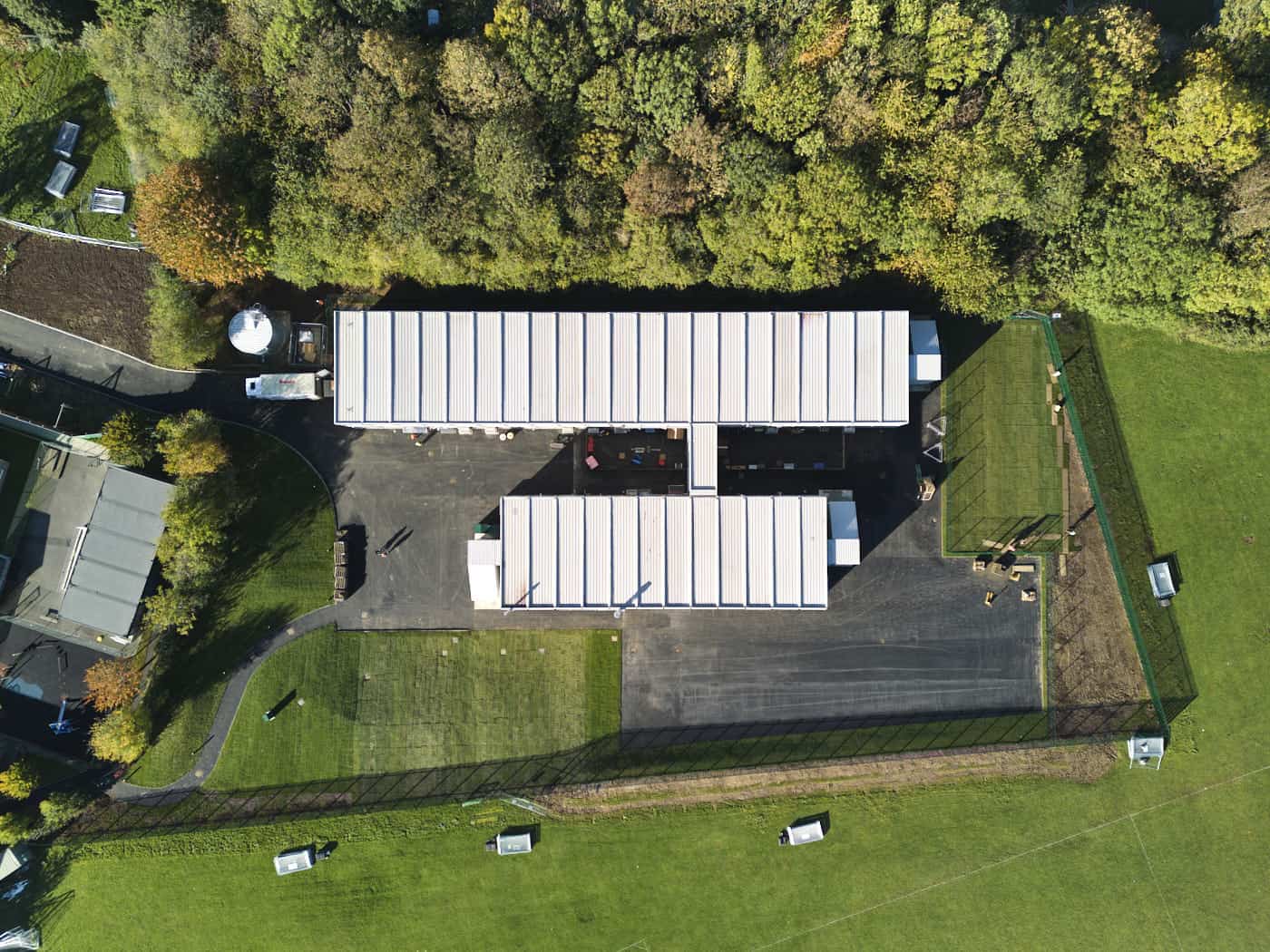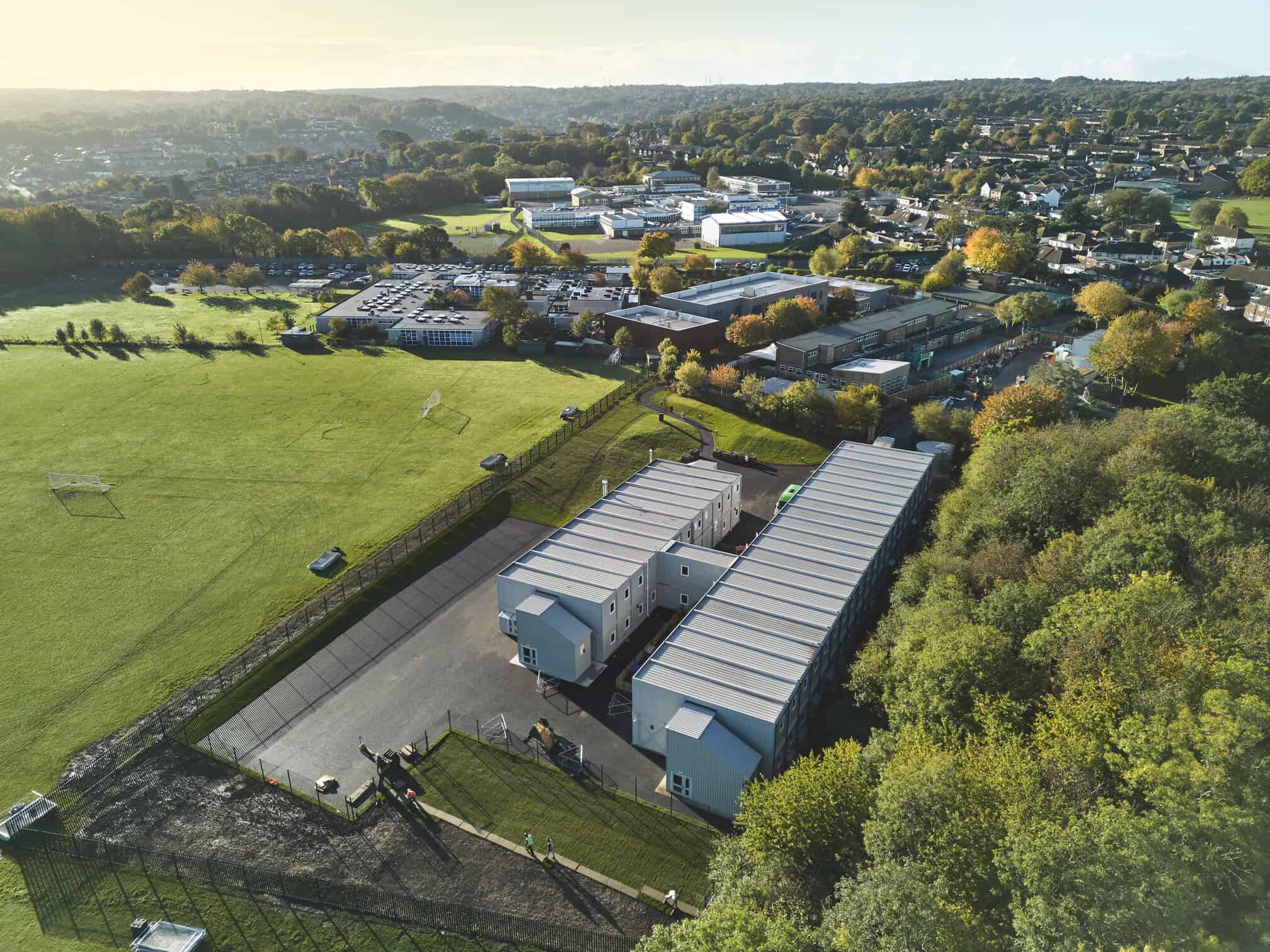Modular construction is rapidly gaining popularity as a flexible and efficient solution for building projects. Navigating the funding landscape for modular building projects can be complex, so it’s essential that you have a good understanding of all the options available for both permanent and rental buildings.
Whether you’re considering a permanent structure or a temporary rental solution, understanding your financing choices will enable you to maximise your budget to its full potential.
- Modular vs traditional buildings
Modular construction offers significant cost advantages over traditional building methods. The most important benefit being speed and efficiency; modular buildings can be installed in a matter of weeks, rather than months. This speedy process is made possible by the offsite fabrication of the modular units, which drastically reduces project timelines. Once delivered, the assembly of the building can be completed in days, allowing for immediate occupancy and quick ROI.
In addition to saving time, modular construction also leads to substantial cost savings. The efficient offsite construction process reduces labour costs, while the lighter weight structures also provide significant cost saving in sub structure requirements. Additionally minimal site downtime helps maintain productivity. This means that organisations can begin generating revenue from their buildings much earlier than with traditional construction methods, further enhancing overall ROI.
- Unlocking flexible budgets
To ease budget constraints, when considering rental options, organisations can use operational expenditure (OpEx) budgets as an alternative to capital expenditure (CapEx). CapEx is typically reserved for long-term investments, like property acquisition or building maintenance, whereas OpEx covers day-to-day operational expenses.
Onsite building projects tend to fall under CapEx due to their long-term nature, but modular buildings can offer a more easily funded alternative. By opting for temporary modular buildings instead of outright purchases, organisations can quickly address their space needs while tapping into OpEx resources.
This approach enables companies to spread the cost of their building project month by month, aligning space needs with available operational funds. By utilising OpEx budget for these rentals, organisations can manage their expenses more efficiently, avoiding the need for large upfront capital investments while still meeting infrastructure needs.
- Consider lease vs purchase
When considering modular construction, the choice between rental ad permanent options depends on various individual factors, such as timeline, budget constraints and future plans.
Rental modular buildings provide medium and long term flexibility and offer immediate responses to short-term needs, making them ideal for quick capacity expansion. If you need a building onsite quickly, a rental modular building is an ideal turnkey solution that can be delivered and ready to use almost immediately and scaled to the customer’s needs over time. Schools, for example, may need additional classroom space whilst refurbishing their existing buildings. Bradfield’s Academy, in Kent, used a rental modular solution to create temporary classroom space for students whilst undergoing a full school refurbishment.
On the other hand, permanent modular buildings are designed for long-term use and customised to meet specific requirements, for example being adapted for specialised healthcare settings. St Peter’s Hospital, in Chertsey, required an additional 62-bed Priority Assessment Unit to accommodate an increased demand for emergency care.
Just because it’s permanent, doesn’t mean you have to use CapEx to finance your project. Flexible finance options can be used when purchasing a modular building, enabling you to use revenue budgets as an alternative to capital funding. Modular buildings can be purchased through procurement frameworks, like NHS Shared Business Services or LHC Modular Buildings Framework, streamlining the acquisition process.
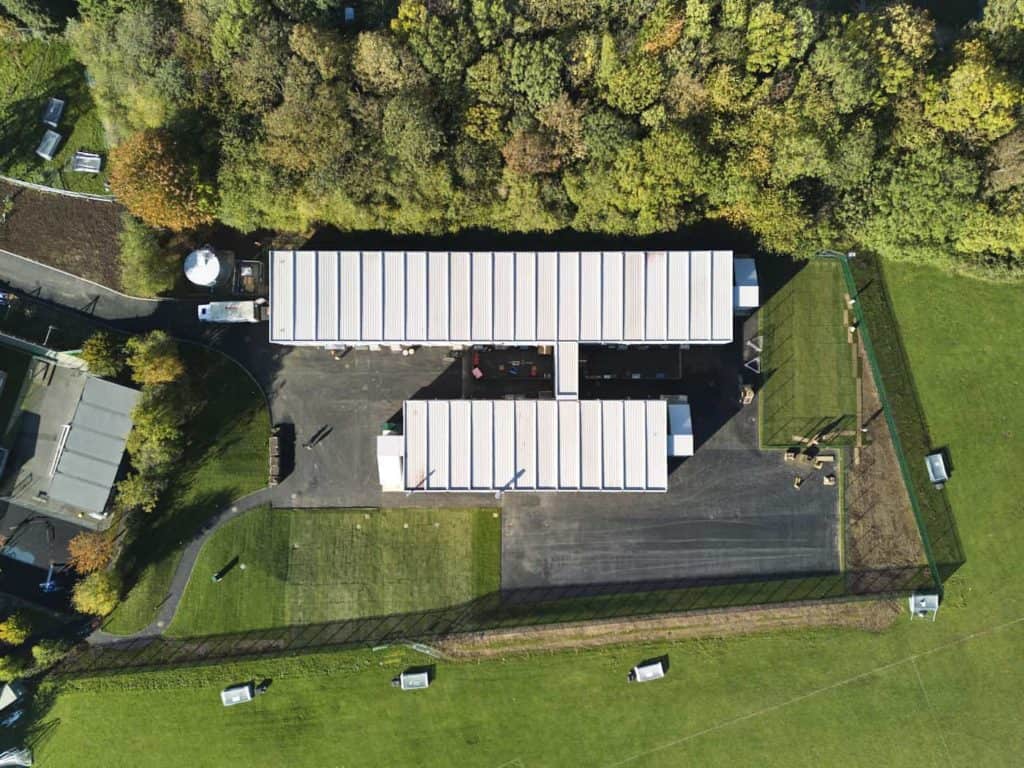
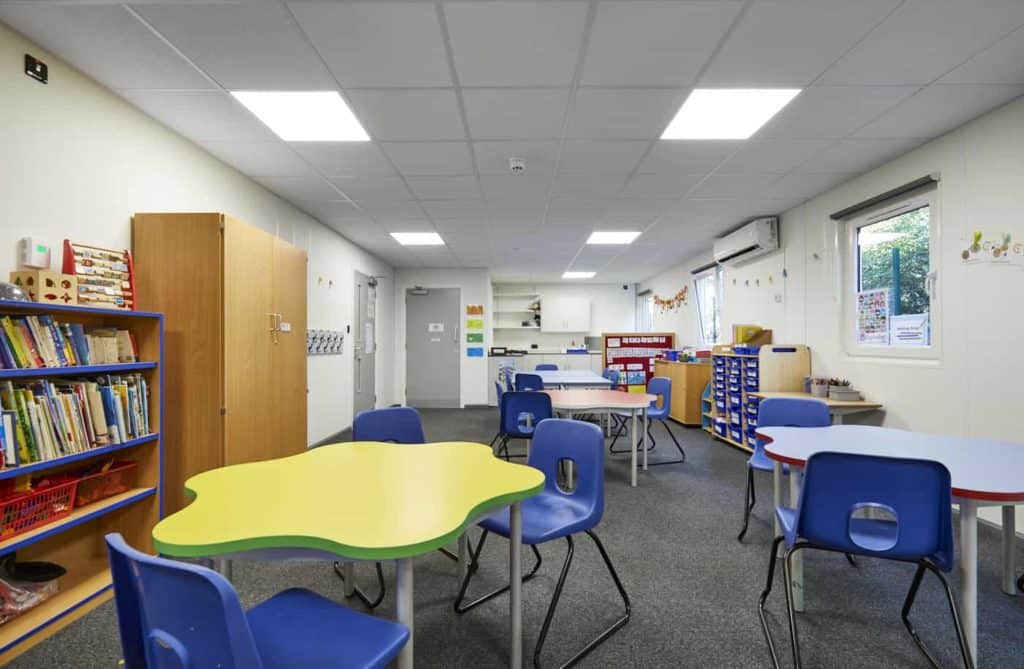
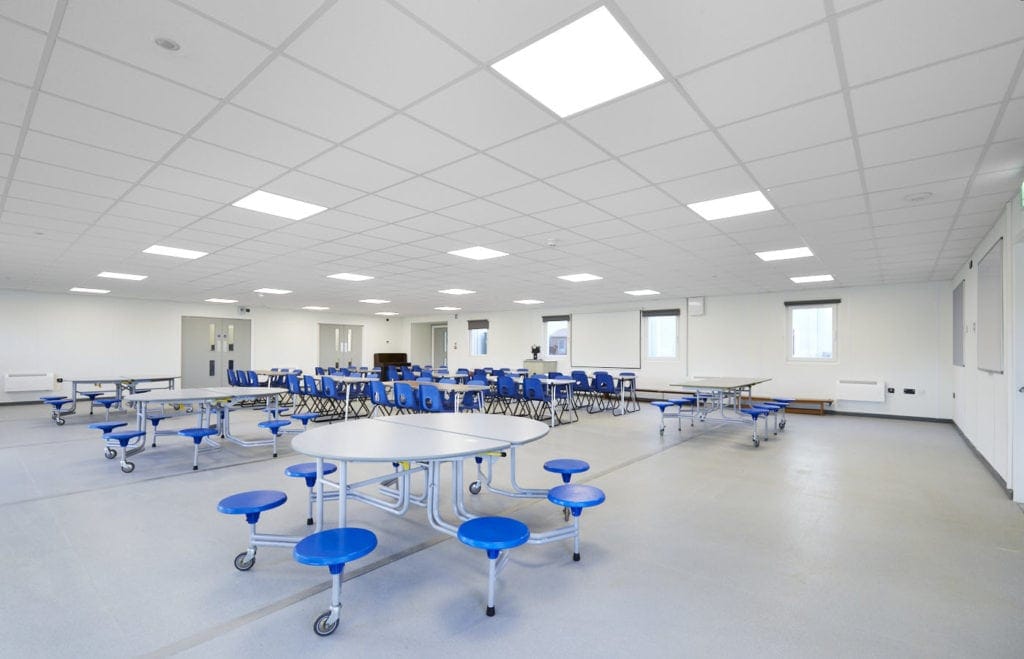
- Consult with specialist lenders
When looking into financing your project, it’s important to partner with a specialised expert in modular construction. A modular building is classed as a removable asset, which allows for flexible finance agreements beyond just structural elements. Due to this, there are multiple options for finance including deferred payment plans, pay-per-use models, or managed service agreements.
We regularly work with clients who are keen to pursue an offsite solution, and our team can advise on flexible finance options that suit your project, as well as offering insight on sector specific procurement frameworks.
Remember, the right financial partner will not only provide funding solutions but also offer valuable insights into the modular construction process, helping you to navigate challenges and optimise your project’s financial structure.
- Save through sustainability
Incorporating sustainable practices into modular projects can significantly support budgets alongside benefiting the environment. Key elements like solar panels and rainwater harvesting systems offer long-term cost savings and efficiency, alongside other sustainable technologies such as smart plug sockets. Tapping into small power and making efficiencies can reflect in at least a 20% saving on electricity bills.
Opting for a modular lease doesn’t mean you have to compromise on sustainability; both permanent and rental modular buildings are ‘green’ in their own ways. Rental buildings can often be placed long-term. By having sustainable technology integrated into the design you can benefit from savings you may otherwise miss out on. By integrating these sustainable features, organisations can contribute to environmental conservation and enjoy lower overall costs.
Interested in finding out more about financing a modular building project? Contact our team today.

